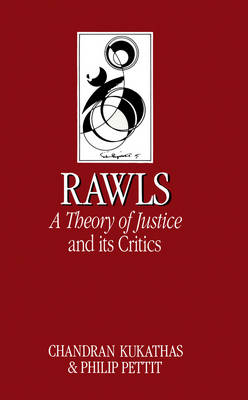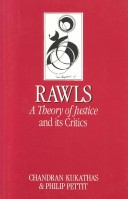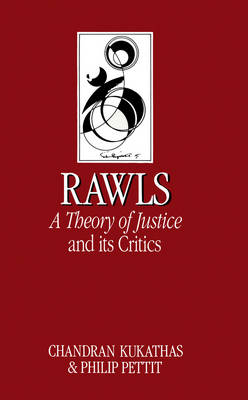Key Contemporary Thinkers
3 total works
Rawls – A Theory of Justice and its Critics
by Chandran Kukathas and Philip Pettit
Published 20 September 1990
John Rawls' "A Theory of Justice" has been influential in philosophy, political theory, welfare economics and jurisprudence. This book is thought to be the first full-length study of Rawls' work. It provides a concise account of Rawls' central ideas, situates them within contemporary debates, and submits them to critical scrutiny. Kukathas and Petit discuss, among other things, the utilitarian orthodoxy and its problems; the emergence of majoritarian and other social choice alternatives; the contractarian synthesis and its policy implications; the notion of reflective equilibrium; and the various critiques of the contractarian view.
John Rawls' Theory of Justice and Its Critics
by Chandran Kukathas, Philip Pettit, and Chandran Kuathas
Published 20 September 1990
John Rawls' "A Theory of Justice" has been influential in philosophy, political theory, welfare economics and jurisprudence. This book is thought to be the first full-length study of Rawls' work. It provides a concise account of Rawls' central ideas, situates them within contemporary debates, and submits them to critical scrutiny. Kukathas and Petit discuss, among other things, the utilitarian orthodoxy and its problems; the emergence of majoritarian and other social choice alternatives; the contractarian synthesis and its policy implications; the notion of reflective equilibrium; and the various critiques of the contractarian view.


